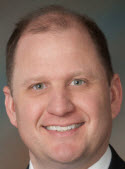Guest column: New thinking needed on schools
By Peter B. Ruddell/Wiener Associates
The recent series of articles and the report “The Public’s Agenda for Public Education” confirm the policy direction being advanced by the Michigan Public Education Finance Project (“the Project”). Contrary to simplistic analysis portrayed in the article “Online ed expansion, school choice plan murky in 2013”, the Project has far greater policy concerns.
Additional choice and online learning options are just a couple of tactics to a new, fresh approach to school funding that the Center for Michigan research shows parents are looking for. Our project team has been working since July 2012 to draft legislation accomplishing two primary goals, as outlined by Gov. Rick Snyder’s Special Message on Education, issued April 27, 2011:
* Any Time, Any Place, Any Way, Any Pace public education system -- i.e. or ensuring each student is learning in the manner that best fits that particular student.

- Peter B. Ruddell is an attorney with Wiener Associates, PLC. He is the principal drafter of the proposed Michigan Public Education Finance Act.
* Performance-based funding public education system -- i.e. bringing more accountability to K-12 funding.
Obviously, within each of these major topic areas are countless public policy and education policy issues.
The most frequent comments in numerous categories of the Center for Michigan’s report reinforce the public’s desire to enact these two policy changes:
* “Adapt teaching to individual student needs” – top comment in “Areas in need of More Investment.”
* “More accountability and efficiency in K-12 funding is needed” – top comment in “Areas in need of Financial Reform” and top comment among all topics.
* “Get creative; more teaching models; curriculum choices, individualized learning and critical think” – top comment in “Regarding Student Learning.”
It is clear from the Center for Michigan’s report and the numerous conversations I personally had with school administrators, teachers, parents, work force development agencies, businesses and others, there is a growing desire to improve our public education system by instilling more personalized education for each student and to create greater accountability for the nearly $14 billion of taxpayer funds supporting Michigan’s public education system. The unresolved question is the best public policy for Michigan in accomplishing these goals.
In the coming weeks, we will be releasing the final report and bill draft of the proposed Michigan Public Education Finance Act. This will be a thoughtful and diligent attempt to provide the public answers to the best public policy changes necessary to personalize education and bring greater accountability to the K-12 funding system.
See what new members are saying about why they donated to Bridge Michigan:
- “In order for this information to be accurate and unbiased it must be underwritten by its readers, not by special interests.” - Larry S.
- “Not many other media sources report on the topics Bridge does.” - Susan B.
- “Your journalism is outstanding and rare these days.” - Mark S.
If you want to ensure the future of nonpartisan, nonprofit Michigan journalism, please become a member today. You, too, will be asked why you donated and maybe we'll feature your quote next time!

